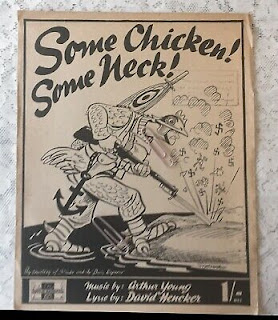Eighty years ago Stalin confronts Eden with his war aims
Despite attrocious weather Soviet forces landed and established secure lodgements on the Kerch Peninsula, the eastern extremity of Crimea that divides the Black Sea from the Sea of Azov. The operation was intended to break the siege of Sebastopol by threatening the flank of German forces in Crimea. It was the Red Army's first major amphibious operation and was largely extemporised. Coming soon after the counter-offensive on the Moscow front it proved that the German invaders no longer held complete initiative. Stalin claimed personal credit for the attack. The landings failed, though, in their larger military purpose. The Germans rapidly contained the bridgeheads and Sebastopol remained tightly invested.
Antony Eden the British Foreign Secretary visited Moscow to discuss how Britain and the Soviet Union might collaborate. He was speedily confronted with Stalin's underlying war aims. As a preliminary to any substantial conversation, he was invited to accept the Soviet Union's 1941 frontiers, incorporated the regions of Poland seized in partnership with Hitler in 1939 and the Baltic States, annexed the following year after the allied collapse in France.
The British garrison of Hong Kong surrendered after heavy shelling by the besieging Japanese forces. The 15,000 men included about 2,000 Canadians. As an enclave surrounded by Japanese held territory, Hong Kong had never had any serious prospect of holding out, but its fall delivered a body-blow to the image of white superiority over orientals which had underpinned the European domination of the Far East for the best part of a century.
The Japanese seaborne invasion had firmly taken the intitiative in its assult on the US' quasi-colony of the Philippines. The US commander Geeneral MacArthur declared the capital Manila an open city and withdrew his forces into the Bataan peninsula.
Churchill's visit to Washington closed on a high note even if later romnaticised accounts of UK-US partnership for the rest of the war gloss over significant differences between the nations. Perhaps the most important practical decision was to set up a committee of the joint chiefs of staff which made for the fullest military co-ordination possible at the highest level. On a more symbolic level Churchill was given the honour of addressing a joint session of Congress. He rounded off his visit to north American with a rosuing speech in Canada where he picked up Marshal Petain's assertion that Britain would have its neck wrung like a chicken, "Some chicken. Some neck."
General de Gaulle gave a hint of his intention of pursuing an independent line for Free France when his forces invaded the St Pierre and Miquelon islands off Newfoundland which had remained fathful to Vichy. Despite their potential value to the Axis, the US had opposed the move as an apparent European colonialist breach of the Monroe Doctrine.



Not clear who said that. Churchill’s speech refers to ‘French generals’. I always thought it was Weygand?
ReplyDelete